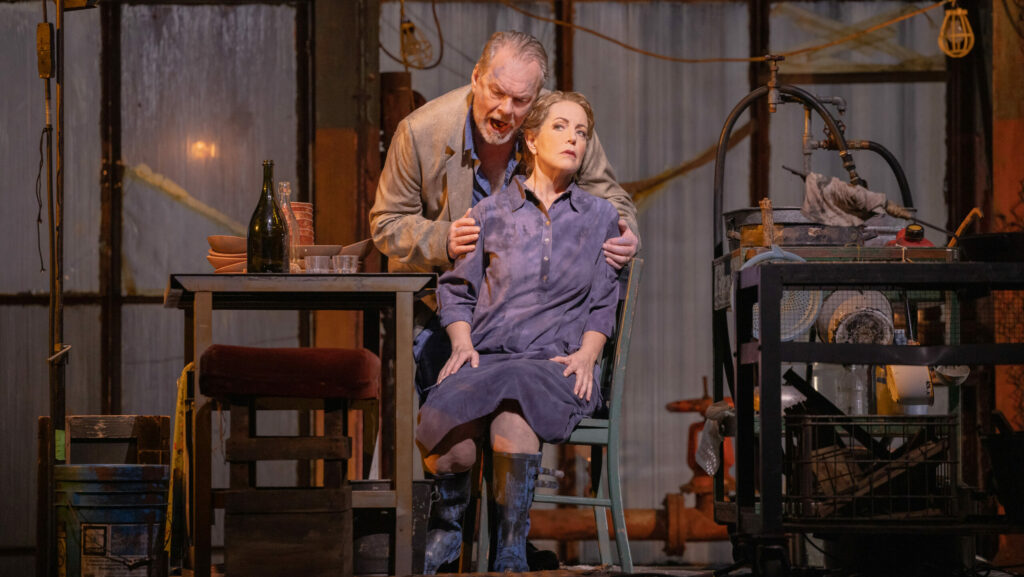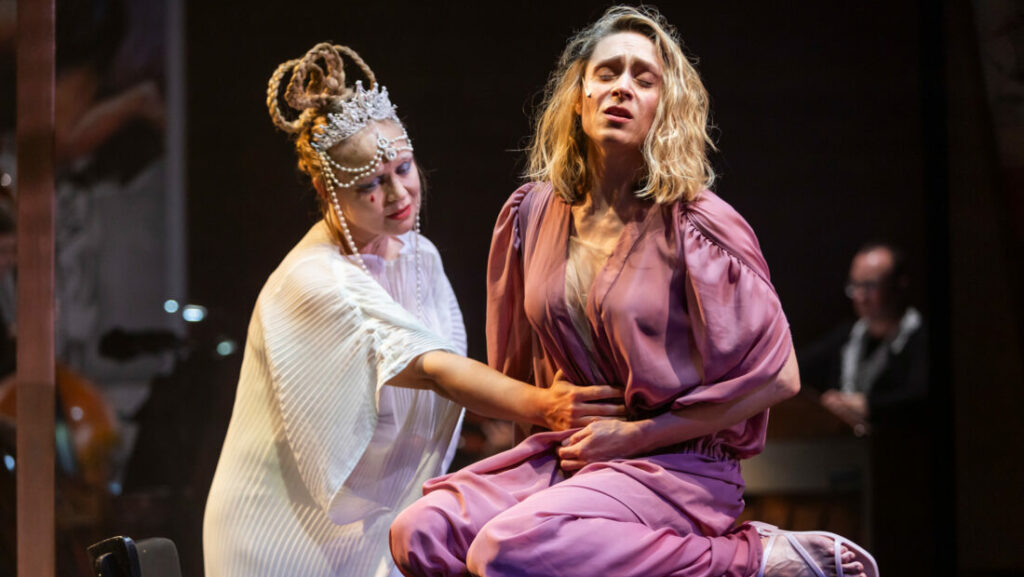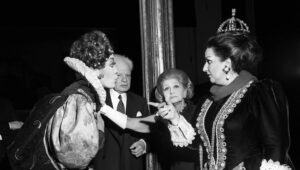
Evan Zimmerman
“My soul is sated with motherhood before it has tasted it,” sings the Dyer’s Wife in Act I, Scene 2 of Strauss and Hofmannsthal’s 1919 opera Die Frau ohne Schatten. The Dyer’s Wife’s rejection of motherhood resonates with me as a childless twenty-something-year-old woman accustomed to dodging questions regarding when I plan to have kids. As a musicologist (and more importantly, a living, breathing woman) researching reproductive discourse in interwar German opera, my relationship with Die Frau Ohne Schatten is undoubtedly complicated. Die Frau tells the story of a half-sprit, half-human Empress who is unable to cast a shadow (Hofmannsthal’s metaphor for fertility) and must venture into the human world to acquire one.
Luckily her prayers are answered when introduced to the Dyer’s Wife who will gladly sell her shadow in exchange for promises of silk attire, youthful beauty, and a nightly throng of lovers. Given the current political moment where reproductive rights are continually threatened, the Dyer’s Wife’s choice to be childless reads as an expression of bodily autonomy, the ability to sell her shadow a privilege amid the right-wing demonization of contraceptives. However, due to her choice, Strauss and Hofmannsthal characterize the Dyer’s Wife as selfish, taunting her throughout the opera with a chorus of unborn children who sing “Mother, Mother, let us come home.” The children’s chorus likewise taunts me with their pleas, materializing in my imagination as bold, black ink on pro-life posters.
Under its fairy-tale plot and vast symbolism, Die Frau is an opera about women’s reproductive responsibility; the Empress lacks fertility and must venture into the human world to purchase it, the Dyer’s wife is marginalized for her choice to be childless; and the Empress’s Nurse is positioned as the villain, a Mephistopheles-type who abhors all things human, especially reproduction. In Hofmannsthal’s own words in a 1915 letter to Strauss, the “pending transaction [of the shadow] and its final settlement by a Solomonic judgment of higher forces, whose spokesmen are the ‘Unborn Children’…… is the essential core and meaning of the whole opera.”

Thomas Koy
Music critics have aptly noted Die Frau’s reproductive narrative and are now beginning to consider its political resonances; Joshua Kosman’s July 2022 piece in the San Francisco Chronicle does so by considering Die Frau in conversation with the overturning of Roe v. Wade one month prior. While reflections such as Kosman’s are timely, as a musicologist I can’t help but consider the reproductive landscape of Die Frau’s premiere in interwar Vienna and wonder about the experiences of those women seated in the audience and singing on stage in 1919.
At the time of its composition, reproductive discourse was not an innocuous topic and frankly had much to do with contemporary anxieties surrounding changing roles for women. Pronatalist policies leading up to and throughout the Weimar Republic and the First Austrian Republic enacted birth incentives alongside restricted access to contraception and abortion, doing so to protect the “Volkskörper” (the body politic) from the “Geburtenrückgang” (declining birth rate). A 1915 report from the Prussian Medical Council claimed declining fertility and birth rates were due to “ethical degeneration,” mainly “women rejecting their duty to the Volk through selfishness and self-indulgence.”
Soon, ideology became law, and a collection of bills in 1918 stopped all public access to contraception and outlawed abortion and sterilization. Throughout the 1920s these policies eventually took the shape of social welfare, promoting what was believed to be the progressive eugenic ideology of “fewer but better children.” These reproductive anxieties were not lost upon Die Frau’s 1919 audience, critic Julius Korngold writing of the premiere, “there is an advocacy for motherhood and reproduction, the guardianship for unborn children, a gynecological argument, so to speak.” When eerily similar headlines to those in 1918 populate my newsfeed, how can I take my seat at a production of Die Frau, like the one seen last fall in New York, and prepare for three plus hours of “Wann gibst du mir die Kinder dazu?”
How can opera companies stage Strauss’ work while considering the complex reproductive narratives playing out both on the political and proscenium stage? This past summer, I saw a production of Die Frau ohne Schatten at Neuköllner Operin Berlin directed by Ulrike Schwab that provided one intervention. The abridged opera performed in a black-box theater took Hofmannsthal’s text and direction as a starting point, weaving poems by Sylvia Plath, Hedwig Dohm, Christine Lavant, and others through the libretto. For example, after the Empress and Nurse descended into the human world, Sheila Heti’s striking words “The egoism of childbearing is like the egoism of colonizing a country—both carry the wish of imprinting yourself on the world, and making it over with your values, and in your image” were spoken, albeit in German.
The inclusion of spoken interjections by writers sharing different views on motherhood privileges narratives of those in positions of motherhood rather than centering the voices of Hofmannsthal and Strauss. In the final act of Neuköllner Oper’s production, the Dyer’s Wife, suitcase in hand, exited the stage rather than embracing Barak and motherhood. In the C-Major finale she sat alone reading a book.
What artistry is possible if we view Hofmannsthal and Strauss’s source material as a starting point, rather than the destination? What would an opera about reproductive discourse look like when staged by those all too familiar with such battles? Do I expect every company to re-stage the ending and interpolate feminist texts throughout, no. But was I, a woman of childbearing age amid Trump’s rise to power back home, affirmed when witnessing a departure from the expected narrative submission to husband and child-rearing? You bet.



